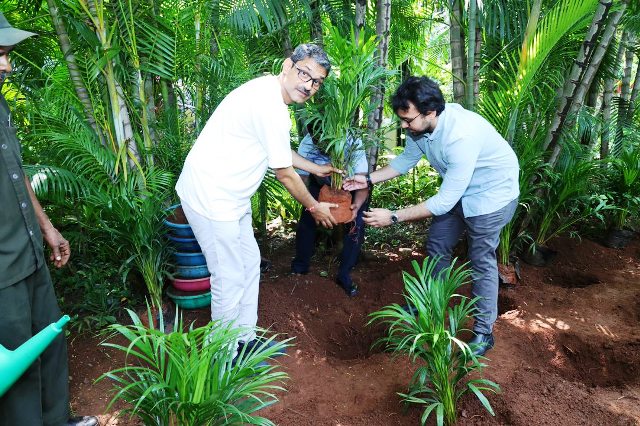How Sustainability in the FMCG Sector will Drive Towards a Better Environment in the Future
Regards,
Related Articles
Sophia Qureshi: Bengal applauded her long before the Nation saluted
“Sophia Qureshi. Naam Toh Suna Hi Hoga!”
If someone says this today, it’s no exaggeration — it’s fact.
On May 7, as the nation erupted in...
This Mother’s Day let’s Pay a Tribute to ‘Bharat Mata’ who once again reminded us we are INDIANS FIRST!
Following almost three weeks of bilateral tension, India and Pakistan finally declared a ceasefire on the evening of May 10, Saturday. India and Pakistan...
Clear Delhi’s Landfill at Faster Pace: Delhi CM to MCD
Chief Minister Rekha Gupta on Friday issued instructions to ensure the clearing of Delhi's three lands in a fast-paced manner. In the high-level meeting...


 Mr Manish Aggarwal is Director at Bikano, Bikanervala Foods Pvt Ltd. For about 20 years now, Mr Manish Aggarwal has been a prominent face in the Indian FMCG industry. During these years, he has proved himself to be an outstanding business leader, innovator and an out-of-the-box thinker always ready to ‘take on’ new problems. Under his leadership, Bikano has made several strides, crossed many milestones and achieved successes which were otherwise inconceivable without his presence and contribution. Today under his extraordinary stewardship, Bikano has come to register itself as a globally-recognised major food brand in the FMCG and packaged snacks category, admired and loved by patrons and food lovers not only within India but also across the world.
Mr Manish Aggarwal is Director at Bikano, Bikanervala Foods Pvt Ltd. For about 20 years now, Mr Manish Aggarwal has been a prominent face in the Indian FMCG industry. During these years, he has proved himself to be an outstanding business leader, innovator and an out-of-the-box thinker always ready to ‘take on’ new problems. Under his leadership, Bikano has made several strides, crossed many milestones and achieved successes which were otherwise inconceivable without his presence and contribution. Today under his extraordinary stewardship, Bikano has come to register itself as a globally-recognised major food brand in the FMCG and packaged snacks category, admired and loved by patrons and food lovers not only within India but also across the world.